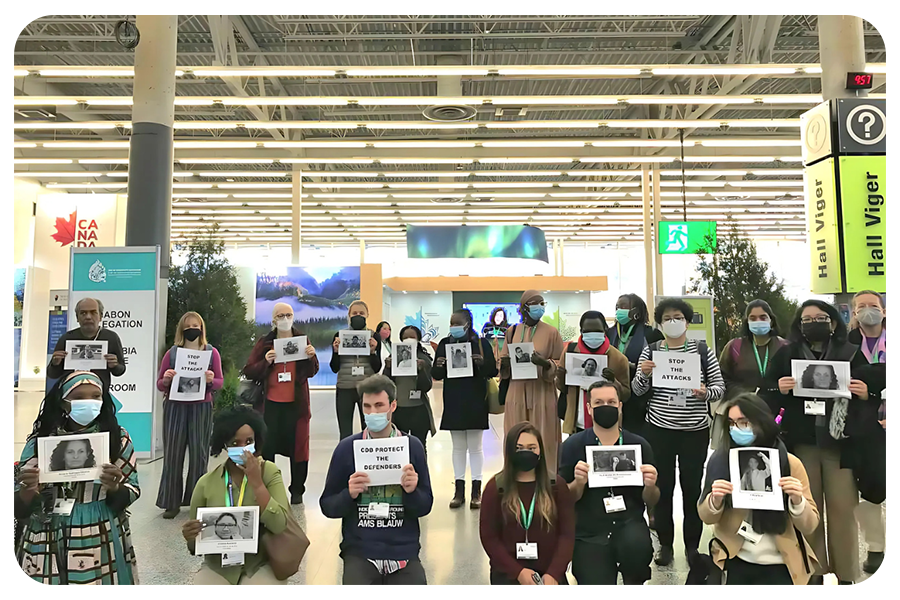Without them, a fundamental tool for change is lost, as they drive citizen participation and the development of sustainable solutions. These are the places where dialogue flows and where people organise to demand fair and transparent governance. These are the grounds where ideas that can transform the future are born.
However, in many parts of the world, these spaces are under threat. In contexts where countries impose barriers on civil society organisations, including some IUCN Members, the restrictions can be severe: limitations on their activities, legal closures, obstacles to accessing international funding and exclusion from decision-making processes. In more extreme cases, this leads to threats, criminalisation and even the murder of environmental defenders, increasing conflicts, and impunity for crimes. In this scenario, protecting nature becomes an even more dangerous task.
IUCN has recognised the importance of protecting environmental defenders through various Resolutions, such as 18.2 (1990), 17.9 (1988), 5.003 (2012), 3.081 (2004) and WCC-2020-115 (2021), which highlight the relevance of governance, partnerships and the protection of environmental defenders and whistleblowers. However, it is also crucial to address the broader context in which they operate, as part of a comprehensive approach to the rights agenda that, following the adoption of the Kunming-Montreal Global Biodiversity Framework (GBF), has gained visibility and relevance.
Within the IUCN community, some of our members and their allies in the field have experienced the limitations of civic space, including cases where their activities —and even their organisations— have ceased to exist. This situation presents a clear challenge: IUCN must strengthen its support to its members and take concrete actions to protect these essential civic spaces.
Such has been the case of the IUCN National Committee of Nicaragua, recognised by the Union since 2005 and still composed of three NGOs in 2023. However, regulatory changes in the country led to the cancellation of legal status for thousands of organisations, including IUCN Members. While this case has drawn attention, similar restrictions or reprisals have occurred in other regions against those working in nature conservation.
Recognising this urgency, the Global Group for National and Regional Committee Development of IUCN has promoted a motion: Strengthening safe civic spaces to fulfil the Global Biodiversity Framework. This motion seeks not only to respond to threats but to prevent them through an immediate assistance protocol, an early warning system for civic spaces at risk and strategies to build the capacity of National Committees to defend these spaces. Additionally, it calls on governments to ratify and implement key agreements such as the Aarhus and Escazú Agreements and demands that the private sector adopt ethical practices that respect these spaces.
Without safe civic spaces, the ability to fight climate change and achieve the goals of the GBF and the SDGs is compromised. Without effective citizen participation, conservation loses one of its greatest allies: the communities and organisations working on the ground.
The IUCN World Conservation Congress 2025 will be crucial to reaffirm that conservation must remain a collective effort, where all voices are heard. Protecting these spaces is not only urgent, but also essential to achieve IUCN’s vision: “A just world that values and conserves nature.”

Photo Credits
CS1: Raquel Jiménez Acosta during the CBD COP15 in Montreal.
CS2: Frida Murillo, taken during a participatory process in Morelia in 2019.